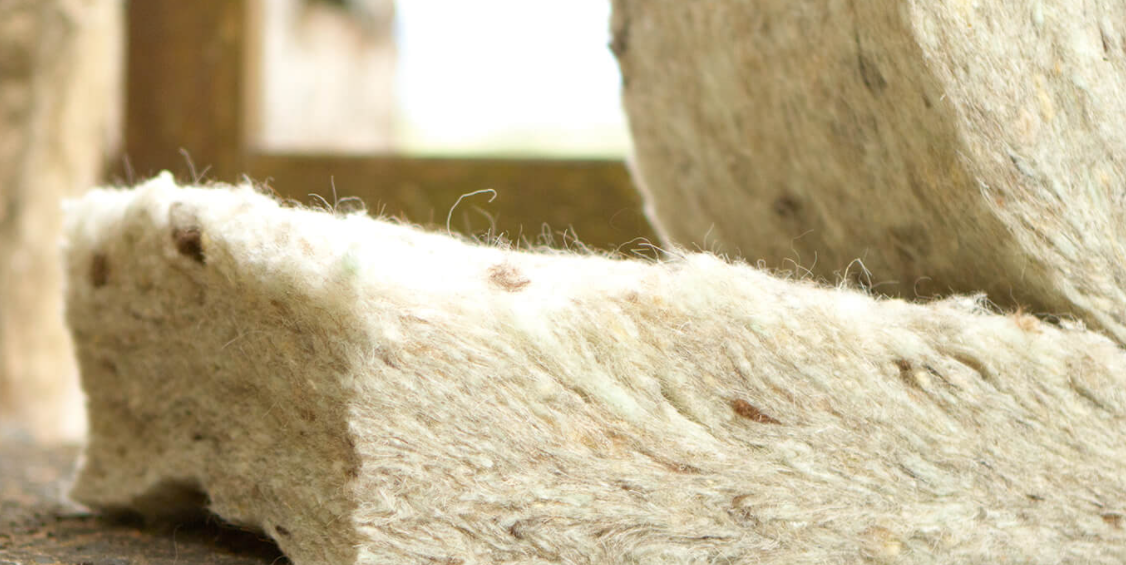Discover More
Natural Insulation
Energy Efficiency Week 2021 / Thursday
Level 3: Going Natural
Natural insulation materials, such as sheep wool or hemp, respect both the environment and your health and are becoming increasingly popular. Their effectiveness is comparable to industrial materials and they are also easy to install with no horrible itchy-prickly fibres.
 |
Will you be insulating with natural materials? |
There are three types of natural insulation:
- Animal-based: sheep wool, feathers and more.
- Plant-based: hemp, cotton, cellulose, wood fibre, cork and more.
- Mineral-based: clay, pearlite and vermiculite.
Their environmental impact is much smaller than that of synthetic insulation, however it is not completely non-existent (for example, you must take into account the energy consumption required to manufacture and transport them). You also need to be vigilant with regard to possible synthetic products (e.g. varnishes and anti-insect treatments) which may be used in processing them.
In addition to the benefits that all natural insulation share, each natural material can boast its own advantageous characteristics. Some are more flexible and can fit perfectly into unusually-shaped spaces, while others come in rigid forms, making them perfect for insulating vertical surfaces.
Hemp (€10 to €25/m2)
Hemp is sold as blocks, rolls and also granules, and is a useful material for a number of reasons:
- It is produced in Europe
- It is an excellent acoustic insulator
- As a moisture-regulating material, it prevents the risk of mildew and fungi
- It is fire-resistant: hemp does not catch fire and does not give off toxic fumes
- A hemp pallet captures approximately 100 kg of CO2 in the atmosphere
Sheep wool (€10 to €15/m2)
Sheep wool is most frequently purchased washed and treated against mites. However, you can also buy it in untreated form, directly from farmers. It is packaged into rolls of different thicknesses.
- It has low flammability
- As it is a moisture-regulating material, it can absorb up to 30% of its weight without losing its insulating properties
- As it is flexible, it can fit into irregular shapes within building structures
Cork (€20 to €40/m2)
Cork is made from tree bark (the cork oak) which is reduced into granules, then heated and agglomerated. It is sold as tiles or granules. Avoid boards which have been reinforced with synthetic adhesives, which give off toxic substances!
- Cork is very lightweight
- It is rot-proof and waterproof
- It is fire-resistant and termite-resistant
Cellulose wadding (€10 to €25/m2)
Cellulose wadding is made from recycled paper and is sold loose (which is less expensive) or as boards.
- It has a similar insulation coefficient to glass wool
- It is a very good acoustic insulator
- It is easy to install
Coconut wool (€25 to €30/m2)
Coconut wool comes from the fibres surrounding coconuts. It is sold as flexible rolls, semi-rigid boards, and also loose.
- It is an excellent noise insulator
- It has very good water-vapour permeability
- It does not damage the environment when reprocessed
Privacy Overview
| Cookie | Duration | Description |
|---|---|---|
| cookielawinfo-checbox-analytics | 11 months | This cookie is set by GDPR Cookie Consent plugin. The cookie is used to store the user consent for the cookies in the category "Analytics". |
| cookielawinfo-checbox-functional | 11 months | The cookie is set by GDPR cookie consent to record the user consent for the cookies in the category "Functional". |
| cookielawinfo-checbox-others | 11 months | This cookie is set by GDPR Cookie Consent plugin. The cookie is used to store the user consent for the cookies in the category "Other. |
| cookielawinfo-checkbox-necessary | 11 months | This cookie is set by GDPR Cookie Consent plugin. The cookies is used to store the user consent for the cookies in the category "Necessary". |
| cookielawinfo-checkbox-performance | 11 months | This cookie is set by GDPR Cookie Consent plugin. The cookie is used to store the user consent for the cookies in the category "Performance". |
| viewed_cookie_policy | 11 months | The cookie is set by the GDPR Cookie Consent plugin and is used to store whether or not user has consented to the use of cookies. It does not store any personal data. |



